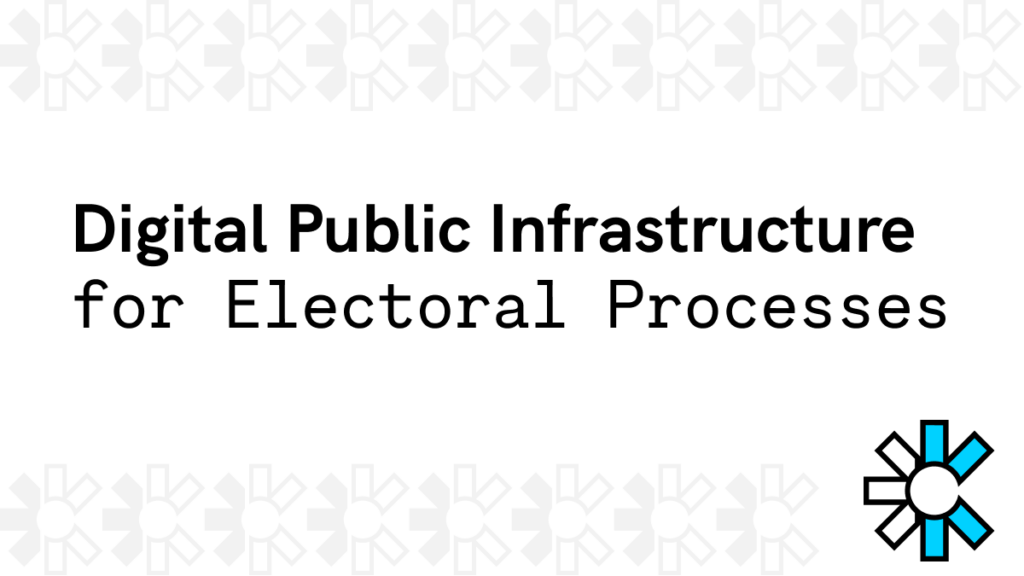Last Wednesday, October 25, we had the pleasure of organising the first round table to share experiences related to the development of open digital technologies and data standards in electoral processes.
Beyond presenting our new initiative, the main objective of the event was to listen to and know the local perspectives of each participant, in the hope of identifying common points and possibilities for collaboration.
Round table
Andrea Villagrán, deputy of the Movimiento Semilla, talked about the current situation in Guatemala. She described the Guatemalan electoral process as “coup-proof”. She highlighted the active participation of citizens, with inspectors from all parties, and everyone’s access to voting records, which empowers people to protect their vote.
Isabela Granados Arocha, a teacher and data journalist, shared her experiences and challenges while working at the API Electoral in Colombia. She stressed the importance of collaborating with universities and the energy that young people bring to these projects. They used Popolo as a guide to structuring the data. At the regional level, it was not always easy to obtain data; they made more than 300 requests for information, of which 40 percent received a response.
Cristian Pérez, a journalist and member of Open Data Cordoba, spoke about the open and interparty scrutiny that took place in Córdoba. This experience raised the standard both in the publication of electoral results at the provincial level and in the way the media communicates electoral processes.
Federico Lazcano and Daniela Rosario Bustamante, of the National Electoral Directorate of Argentina (DINE), presented the development of Electoral Data Standards, stressing the importance of having a Standard of Preservation of Electoral Results. This standard defines the final storage format and the delivery of final data from the vote count (which is tendered in Argentina to private companies).
Valeria Lisciani, a political scientist and project coordinator in Democracia en Red, shared her experience in the project “MeRepresenta” by compiling and standardising the data of proposals of political parties that are in various unstructured sources, such as PDFs and web pages. She stressed the importance of a good user experience due to the challenge of summarising and presenting so much information. Their objective is to replicate this methodology in other Latin American countries.
Juan Pablo Ruiz Nicolini, the coordinator of the Fundar data area, emphasized the importance of the development of open software within a global framework that recognises the need for an Intelligent State. A Smart State values data as an asset, uses it and protects datasets.
About the project

The Open Knowledge Foundation wants to create and enable an international alliance to advocate, design and implement building blocks for a Digital Public Infrastructure for Electoral Processes. The goal of the alliance is to create open-by-design technology that can be reused to make democratic processes more trustworthy, resilient, and transparent.
It is not about voting systems. It’s about how open source technology can support all of the stages of the electoral process. From managing the database of candidates and polling stations to the publications and archiving of results.
Democracy needs to be more participatory and only openness can create the foundations for processes where people can be integrated.
The first step in this initiative is to understand what is already available in the field of open elections. We are carrying out a collaborative mapping of local and global projects to gather critical mass and identify gaps, elements that can be reused and the most urgent needs.
Do you know of existing projects or professionals contributing to a digital public infrastructure for elections? Add them now to our Project Repository or Global Directory under the Open Elections category.
Join the coalition
You can express your interest in being part of the coalition working on this project. Fill out the form below and stay tuned for our team to get in touch with more information about the next steps.








